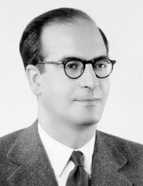

This reasoning was laid out in the second edition of his study, published in 1982. In the new Preface, at a time when the relegation of politics hindered any characterization of the “Portuguese world”, his study of Pombal was presented as a study of the decision-making process, and in this dialectic JBM invoked Hegel amongst a series of references that included Burnham, who had drawn attention precisely to the commercial dynamic. He set out to study the time of Pombal, to formulate hypotheses for understanding its conjunctural situation. In this light Macedo insisted on clarifying political concepts, rejecting the notion of a monolithic absolutism and substituting for it “absolutism as a theory of power”, a concept he had defended, as he recalled, in his article for Serrão’s Dicionário de História de Portugal. According to this conception, Pombal was an individual emerging from a group that represented a political alternative. In any case, it was necessary to take into account all forms of social resources, including technology, to which he would devote attention in another fundamental work, his doctoral thesis. As stimuli for the second edition he referred to Luís de Albuquerque, and again invoked Silva Marques and Magalhães Godinho. He also explained what he owed to Hegel and the young Karl Marx, to Ernest Mach and Luppol, Gama Barros, Alberto Sampaio, Basílio Teles, Paulo Merêa, J. Lúcio d’Azevedo, Alfredo Pimenta, Veiga Simões, Mário de Albuquerque and Vitorino Magalhães Godinho, and in his method to Marc Bloch and Lucien Febvre.
In the preface to the third edition, published in 1989, he both reiterated and revised his views. In it he insisted on an interdisciplinary approach to characterizing the economic and social conjuncture, and on politics as an indispensable interpretation of situations, as agent of a creative minority, as Toynbee had understood, responsible to the majority that elected it. Referring to Marc Bloch’s vision of feudal society, he called for an integrated vision of Portuguese society, from the time of the Methuen Treaty up to Liberalism; he also cited the debate on the meaning of “enlightened despotism”, referring to his article on the topic, also in the Dicionário de História de Portugal, insisting that absolutism and internal political struggle could coexist, and that this had been the case in Portugal.
In the second edition of his doctoral thesis, which came out in the same year, he indicated amongst other influences Dilthey, Husserl and Hartmann, the Annales, Fernand Braudel, Jean Meuvret, Arnold Toynbee, Max Weber, Ernest Cassirer, Huizinga, and once again Paulo Merêa.
